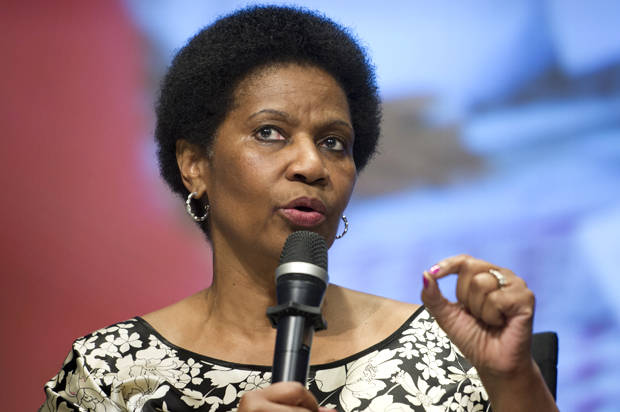Feminism makes the world safer and richer: New U.N. report confirms

When it comes to war, one of the groups most negatively impacted is often ignored: women.
The Global Study, released on Oct. 12, commemorates the 15th anniversary of U.N. Security Council resolution 1325, which called for increased women’s rights and addressed the impact of violent conflicts on women. At a formidable 418 pages, the Global Study, also titled “Preventing Conflict, Transforming Justice, Securing the Peace,” exhaustively explores the relation between violent conflict and women’s rights, drawing from examples of wars from around the world.
Summarizing the Global Study, U.N. Women Executive Director Phumzile Mlambo-Ngcuka said it “shows that women’s participation and inclusion makes humanitarian assistance more effective, strengthens the protection efforts of our peacekeepers, contributes to the conclusion of peace talks and the achievement of sustainable peace, accelerates economic recovery, and helps counter violent extremism.”
“The recognition that peace is inextricably linked with gender equality and women’s leadership was a radical step for the highest body tasked with the maintenance of international peace and security,” said Mlambo-Ngcuka.
“Peace is only sustainable if women are fully included, and that peace is inextricably linked with equality between women and men,” the Global Study states. More than half of peace processes lapse back into conflict within five years, according to the report. Its in-depth analysis of 40 peace processes since the end of the Cold War, however, found that, “in cases of women’s participation and strong influence, an agreement was almost always reached. Furthermore, strong influence of women in negotiation processes also positively correlated with a greater likelihood of agreements being implemented.”
“What’s happened in peace and security is that we’ve completely neglected half the population, and so, we then become surprised that peace isn’t sustainable,” said Alaa Murabit, of the High-Level Advisory Group for the Global Study.
Radhika Coomaraswamy, former Special Rapporteur on Violence against Women, who oversaw the report, emphasized that war and violent conflict is one of the worst things for women’s rights. “Levels of military spending are high and the cycle of escalation must stop,” she said.
The Global Study, which calls for “an emphasis on prevention and ‘no’ to militarization” and stresses “the need for demilitarization and the development of effective strategies for prevention of conflict and non-violent protection of civilians,” is also very critical of contemporary government policies surrounding war.
“Prevention of conflict must be the priority, not the use of force,” it maintains. The report criticizes global priorities vis-à-vis military spending:
“In 2000, global military spending was already estimated above one trillion dollars. Since then, annual military expenditures have increased by approximately 60 percent, or the equivalent of 2500 years of expenditure by international disarmament and non-proliferation organizations. In addition to unilateral military operations, there is now an expanding list of military deployments supported by the UN and regional organizations, such as NATO, the European Union, the African Union, and the Arab League.”